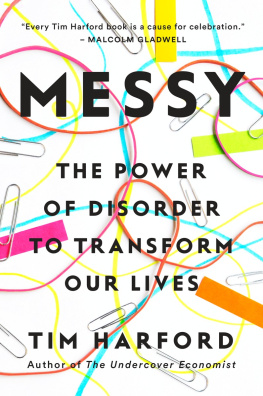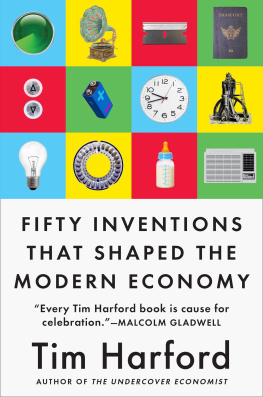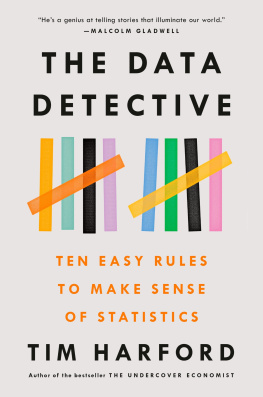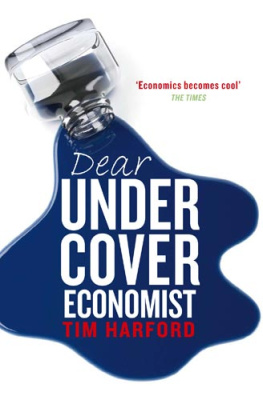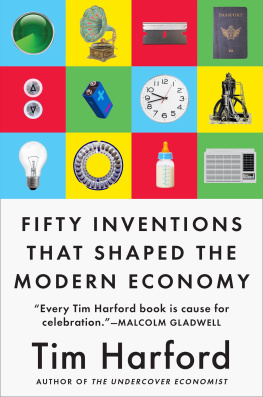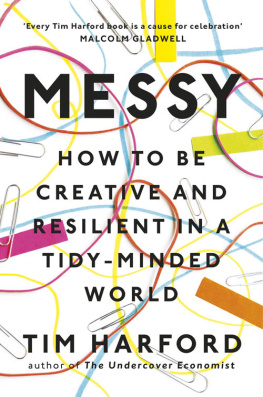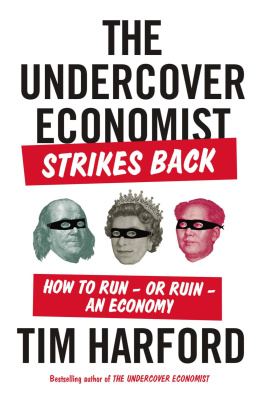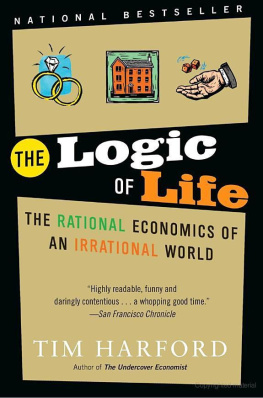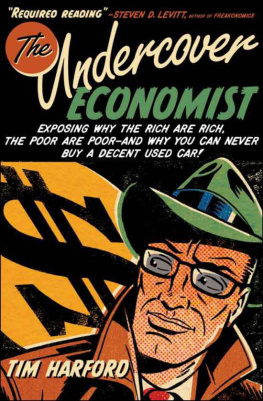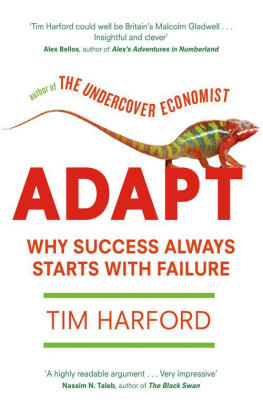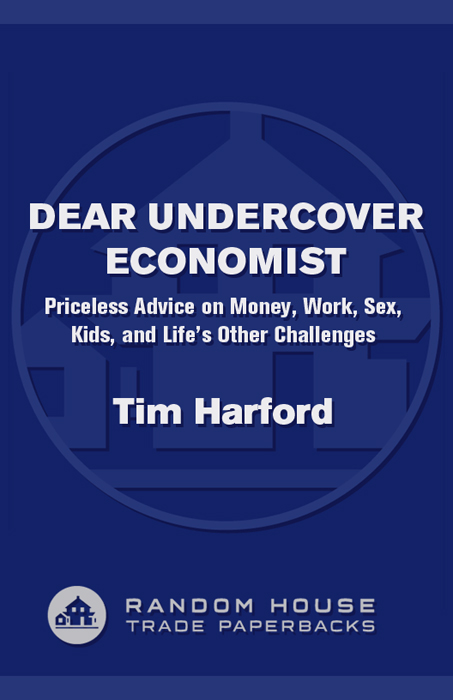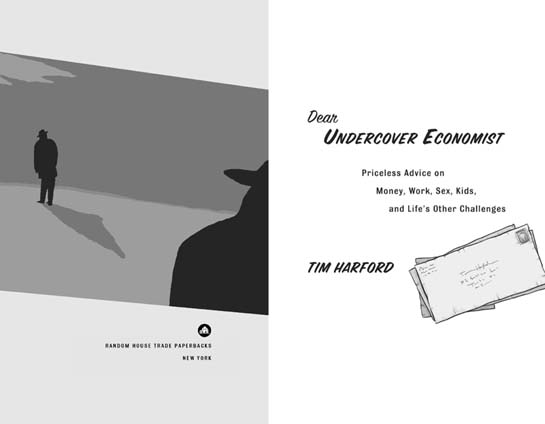Introduction
CAN ECONOMICS MAKE YOU HAPPIER?
E conomists might not be the first people you would think of to give you advice on parenting, the intricacies of etiquette, or the dark arts of seduction. Even at best, the economist can seem a remote figure: infinitely rational, untroubled by indecision or weakness of the will, a Spock-like creature too perfect to be able to relate to mere human concerns. At worst, the economist can look like a social naf, if not an outright sociopath, a man (or occasionally a woman) who knows the price of everything and the value of nothing.
At least, such is the traditional image of the economist, and who is Dear Economist to disappoint? He is not, it would be fair to say, as sympathetic a counselor as Dear Abby, Miss Manners, or Dr. Ruth. He is blunt. He is rude. He loves jargon. When confronted with a woman who enjoys the dating game but worries that she might leave it too late to settle down, Dear Economist offers not a shoulder to cry on but a frank explanation of optimal experimentation theory. When a dinner party guest wonders how much to spend on a bottle of wine, Dear Economist ignores the Good Wine Guide and reaches for the Journal of Wine Economics.
And yet, his advice can be surprisingly sound. In the six years since the Financial Times entrusted me with the awesome responsibility of answering letters to Dear Economist, I have evenwhisper itbeen known to take some of his counsel myself.
This shouldnt be surprising. While Dear Economists bedside manner may leave something to be desired, economics itself is remarkably well suited to the agony genre. The economists instinct to strip away social niceties and turn messy problems into simple abstractions produces just the kind of no-nonsense counsel we expect from any good advice column. Modern economics is no longer dominated by unworldly mathematical supermen but by streetwise statistical detectives focused on real-life problems. And the current debate between behavioral economists and rational choice theorists is throwing ever more light on what rational economic behavior looks like, and what happens when people behave less like Mr. Spock and more like Homer Simpson.
As a result, modern economists understand much about both how we should behave and how we sometimes fall short. If anyone is going to dispense advice with the supreme confidence of the superrational know-it-all, who better than an economist?
SPEED DATING WITH A
MONEY-BACK GUARANTEE

I t is not for nothing that sex, dating, and relationships have traditionally formed the staple of the agony column. Wise words on these subjects are not easy to find. Not many people want to ask their parents for tips about losing their virginity. It is no less embarrassing to seek the opinions of colleagues as one contemplates an extramarital affair. We know that envious friends may not always give us impartial advice when we wonder whether we have, at last, found the one. What could be more welcome in such cases, then, than the cool counsel of economic rationality?
Economists, it is true, do not generally enjoy a reputation as lothariosunsurprisingly, when the economists response to the delicate question of faking orgasms is to reach for the analytical framework of a two-player signaling game. But economists do not dismiss love. On the contrary, we are unorthodox experts in the romantic arts. Economists understand decision-making in the face of uncertainty. We understand the dangerous blandishments of cheap talk and the value of binding commitments.
Above all, economists understand the concept of non-zero-sum games, interactions in which both sides can expect to benefit from the bargain. When it comes to love, you could even say that we economists are optimists.
SEPTEMBER 6, 2003
Dear Economist,
My boyfriend and I have been seeing each other for a while, and last month he moved in with me. It seems sensible for us to put his apartment on the market, but hes suggesting that we wait awhile in case things dont work out. What would you advise?
V.H., via email
Dear V.H.,
Modern living has made it so much more difficult to judge where you stand.
Mothers used to teach their daughters not to believe suitors promises that they would still love them in the morning. Then, commitment was made in the form of a marriage proposal. But when courts in the U.S. stopped allowing women to sue for breach of promise, it became traditional to back up those promises with diamonds, a girls best friend.
Times have moved on, and it is much more difficult for both men and women to gauge their partners seriousness. But if you apply a spot of screening theory to your domestic situation, you will discover exactly where you are. (Screening, the theory of which won enfant terrible Joe Stiglitz a share of the Nobel Prize in 2001, is the art of finding out hidden information by forcing people to act rather than simply murmur sweet nothings.)
If your boyfriend is enjoying the perks of living with you but lacks real commitment to your relationship, then he enjoys a high option value from owning an apartment to which he can return. This is true even if he loves you but doubts the constancy of that love.
If, on the other hand, he is convinced that you will grow old together, the option value of a spare bachelor pad is minimal. The only reason for him to hold on to the apartment is that he thinks its a good financial investment. Pundits can argue about the merits of this, but clearly the potential rewards are trivial compared with the loss of his soul mate.
To screen for your boyfriends type, you must demand that he sell his apartment at onceclaim that the Financial Times has been predicting a fall in prices, if you wish.
The art of successful screening is to impose a demand that one type of person is unwilling to meet. You dont want to be sharing a house with that type of person, so put your foot down.
Yours credibly,
The Undercover Economist
FEBRUARY 14, 2004
Dear Economist,
I have a Valentines Day problem.
I will be taking my sweetheart out for a romantic dinner, and I know how it will conclude: Juliet will refuse dessert, Ill order a chocolate cake, and she will proceed to eat most of it. I find it an infuriating habit. Can you offer me any advice?
Yours sincerely,
Romeo, Verona, Italy
Dear Romeo,
It is safe to say that you will never persuade Juliet to order her own dessert, and ordering two for yourself as a joke is likely to be lost on her. You must take the quantity of cake as fixed and your problem as simply one of division.
This problem is not insoluble if basic utility theory is inventively deployed. Normally, utility theory allows us to choose between spending income on different goods. Your problem is how to choose between two goods: cake for you and cake for Juliet (which will also make you happy, since you love her). Your calculations are complicated by the fact that while Juliet enjoys eating cake, she also enjoys watching you eat cake. Each of you would, given the choice, only eat part of the cake and donate the other part to your lover. But how much to donate?


